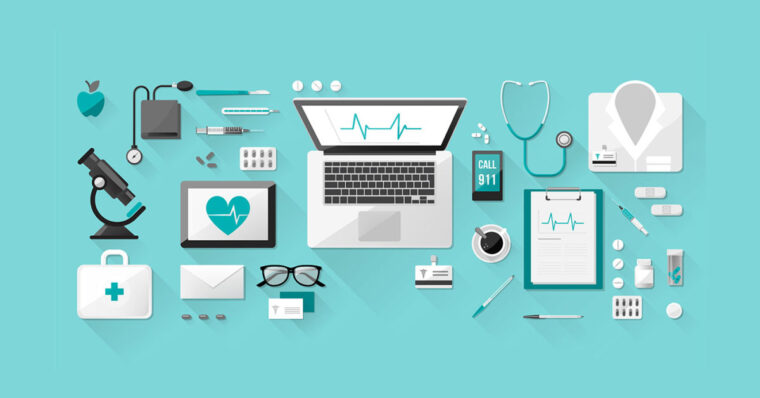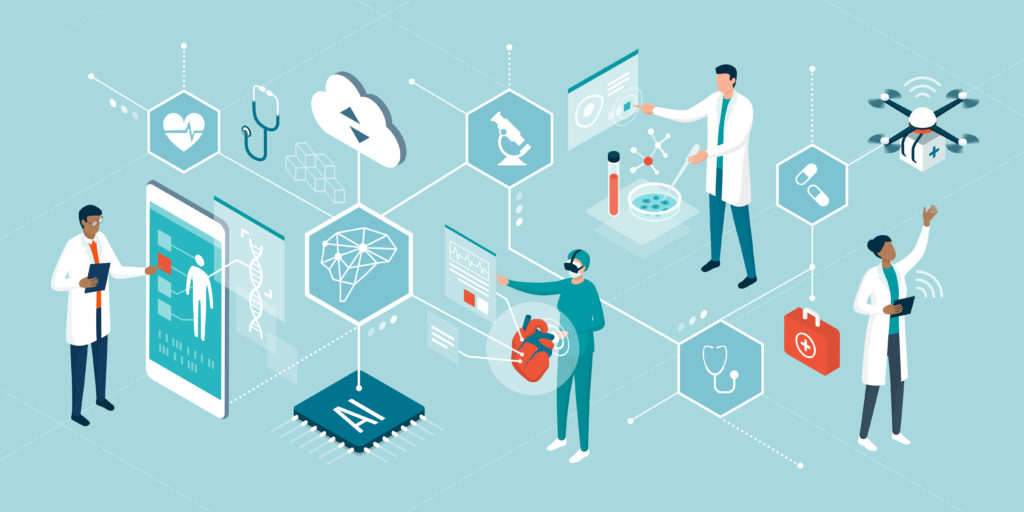How Reliable IT Services Can Transform Healthcare Practices
One of the most profound impacts of IT services in healthcare is the enhancement of patient care. Technology has shifted how medical professionals interact with patients, diagnose conditions, and deliver treatments. Let’s examine how IT solutions directly contribute to better care.

1. Enhanced Access to Patient Records
Electronic health records (EHRs) have revolutionized patient data management. With EHR systems, healthcare providers can store, update, and access patient information in real time. This eliminates the need for paper records, reduces errors caused by incomplete or illegible notes, and ensures continuity of care.
For example, when a patient visits multiple specialists, an EHR system allows all providers to view the same comprehensive medical history, reducing redundant tests and enabling better-informed decisions. Patients benefit from quicker diagnoses, more accurate treatments, and seamless communication between their care teams.
2. Facilitating Telehealth Services
The rise of telehealth has transformed the way patients receive medical care. IT services enable healthcare practices to deploy secure, HIPAA-compliant telehealth platforms that connect patients with providers virtually. This is especially valuable for patients in rural or underserved areas who may struggle with access to in-person care.
With telehealth, routine checkups, consultations, and follow-ups can be conducted remotely, saving time and reducing travel expenses for patients. Additionally, telehealth systems supported by robust IT services ensure high-quality video, reliable connectivity, and secure data transmission.
3. Advanced Diagnostics and Personalized Medicine
Healthcare IT systems integrate advanced diagnostic tools that use artificial intelligence (AI) and machine learning to analyze data and detect patterns. These technologies help providers identify diseases earlier and recommend personalized treatment plans based on patient-specific data.
For instance, AI algorithms can analyze imaging results to detect early signs of cancer, while genetic testing software can provide insights into how a patient may respond to certain medications. IT services play a crucial role in maintaining the infrastructure required to run these sophisticated tools effectively.
Streamlining Operations in Healthcare Practices
While patient care is the ultimate goal, the efficiency of behind-the-scenes operations significantly impacts a practice’s ability to deliver quality services. Reliable IT solutions streamline workflows, reduce administrative burdens, and improve resource management, allowing providers to focus on what matters most—caring for patients.
1. Automating Administrative Tasks
Manual processes like scheduling appointments, billing, and managing insurance claims can be time-consuming and error-prone. IT services enable healthcare practices to implement automated systems that handle these tasks with precision.
For example, appointment scheduling software allows patients to book, cancel, or reschedule appointments online, reducing the workload for front-desk staff. Similarly, automated billing systems ensure accurate coding and faster reimbursement from insurance providers, improving cash flow for the practice.
2. Securing Patient Data
Data breaches in healthcare can be devastating, compromising sensitive patient information and undermining trust. Reliable IT services provide robust cybersecurity solutions to protect against cyber threats, ensuring compliance with regulations like HIPAA.
Encryption, firewalls, and secure access controls are just a few examples of the tools IT services deploy to safeguard patient data. Regular security audits and employee training further enhance a practice’s ability to prevent breaches.
3. Optimizing Resource Management
From managing medical supplies to staffing shifts, IT solutions help practices allocate resources efficiently. Inventory management systems track supplies in real time, ensuring that essential items are always in stock without overordering.
Similarly, workforce management software allows administrators to create schedules that meet patient demand while preventing staff burnout. By optimizing these operational elements, healthcare providers can deliver consistent, high-quality care.

Bridging Communication Gaps
Effective communication is a cornerstone of successful healthcare delivery, and IT services are instrumental in bridging communication gaps between patients, providers, and administrative teams.
1. Streamlined Provider Collaboration
Collaboration between healthcare providers is critical, especially for patients with complex medical needs. IT services enable the integration of communication platforms that allow doctors, nurses, and specialists to share updates and insights in real time.
Whether through secure messaging systems or shared EHR platforms, seamless communication ensures that everyone involved in a patient’s care is on the same page, reducing the risk of miscommunication and improving outcomes.
2. Improved Patient Engagement
Modern patients expect to be active participants in their healthcare journey. IT services empower practices to implement patient portals that give individuals access to their medical records, lab results, and upcoming appointments.
These portals often include features for secure messaging, allowing patients to ask questions or request prescription refills without needing to make a phone call. Increased engagement fosters trust and helps patients take a more proactive approach to their health.
Beyond operational improvements, technology plays a vital role in building and maintaining patient trust. In an era where patients are increasingly aware of cybersecurity risks, having a robust IT framework in place demonstrates a commitment to protecting their sensitive health information. Patients who know their personal data is secure are more likely to engage openly with their healthcare providers, fostering stronger relationships and better outcomes.
Additionally, technology can enhance transparency. For example, patient portals not only provide access to medical records but also allow individuals to track their treatment progress, review their care plans, and receive clear explanations of billing. This level of access and clarity empowers patients, making them feel valued and respected—a cornerstone of trust in healthcare.
Future-Proofing Healthcare Practices
As technology continues to advance, the demands placed on healthcare providers will evolve. Practices that invest in reliable IT services now will be better prepared to adapt to future changes, whether that’s integrating artificial intelligence into diagnostics, adopting wearable health devices, or expanding telemedicine capabilities. Staying ahead of technological trends is not just about innovation; it’s about ensuring long-term sustainability and relevance in a competitive landscape.
By aligning with IT service providers that specialize in the healthcare sector, practices can remain agile and responsive to these changes. Such partnerships provide the expertise needed to navigate complex tech landscapes while allowing healthcare professionals to focus on their core mission—delivering exceptional patient care.
Reliable IT services are more than a technical necessity; they are a strategic asset that drives growth, enhances care delivery, and secures the future of healthcare practices in a digital age.
